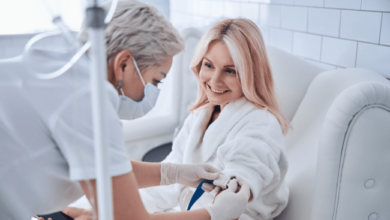Preparing For Plastic Surgery – What to Expect Before, During and After

A detailed discussion of your goals, options, and risks. The surgeon will explain how your treatment or procedure will achieve the desired result and discuss alternatives to help you reach your goal. The surgeon will also show you photos of his previous patients with similar conditions as yours to give you an idea of the results possible in his hands. Be sure to ask for both good and bad examples.
Preparing for Surgery
The decision to undergo surgery for a cosmetic procedure by a plastic surgeon such as Joel Aronowitz is transformative. Having the right mindset and realistic expectations can make your experience more comfortable before and after surgery. You’ll need to read through your surgical instructions and understand them before your procedure. This is especially important for facial operations and other procedures where swelling may occur. Detailed instructions will be provided for what to eat, drink and avoid, and how to take medications before and after your surgery. Shower the night before and the morning of your surgery with antibacterial soap, removing all piercings and jewelry. Wear loose, comfortable clothing and leave valuables at home—plan on having someone drive you to and from the surgery and post-op appointments. Also, pack a bag with items you might need for your recovery, including snacks and entertainment (books, magazines, etc.). You’ll likely feel groggy after cosmetic surgery and will want to relax.
Preparing to Go Home
While the exact instructions from your surgeon, for example, Dr. Joel Aronowitz, may vary from person to person, everyone should do a few general things before surgery. Taking these steps helps you mentally and physically prepare for your procedure, which can significantly reduce complications. Avoid prolonged sun exposure before your procedure, as this can cause inflammation and make the surgical area more sensitive and prone to bleeding. This can also increase bruising and swelling after your surgery. If you have children or pets, arrange for someone to care for them during your recovery period. Pets especially can be hard to keep out of bed or away from the ointment you must put on the healing wounds. Do not smoke before or after your surgery, as this increases bleeding risks, restricts blood flow, and delays healing. Smoking also makes the ointment you need to use more difficult to wash off, which can lead to infection.
Post-Operative Care
Depending on the surgery, patients will need plenty of rest and limited strenuous activities. If your schedule does not allow for adequate recovery time, you must consider delaying the procedure until you can afford the time off work. They have a friend or family member available to care for you for the first 48 to 72 hours after surgery, including waking you for pain medications and helping you to the bathroom. They can also prepare ready-to-eat meals and ensure you have clean, fresh clothes.
Ensure you know who will administer the anesthesia and that they are a doctor of medicine or certified registered nurse anesthetist (CRNA). Smoking patients have significantly higher risks during and after surgery, as nicotine restricts blood flow to organs. Ideally, it would be best to stop smoking six weeks before your operation. It is essential to discuss this with your surgeon.
Recovery
During your recovery, you must have someone to drive you to and from the surgery center to help you with the housework and to care for the children (if applicable). Your surgeon can help you understand how long your recovery will last based on your procedure and the nature of your work so that you can plan accordingly. It’s also a good idea to stock up on healthy foods like fruits, vegetables, and lean proteins that will be easy to prepare. It’s also a great time to stop smoking and cut down on alcohol. These are both known to slow healing. Smokers tend to have more noticeable scarring after plastic surgery. Shower as often as possible, but avoid using loofahs and sea sponges that may harbor living organisms. If there’s a day you can wash with an antibacterial soap, that would be ideal. It would be best if you also tried to limit your exposure to sunlight since it can cause incisions to hyper pigment and darken.




